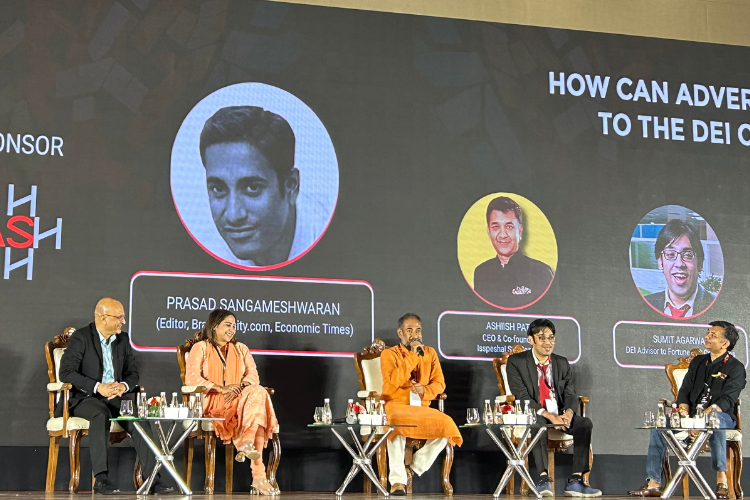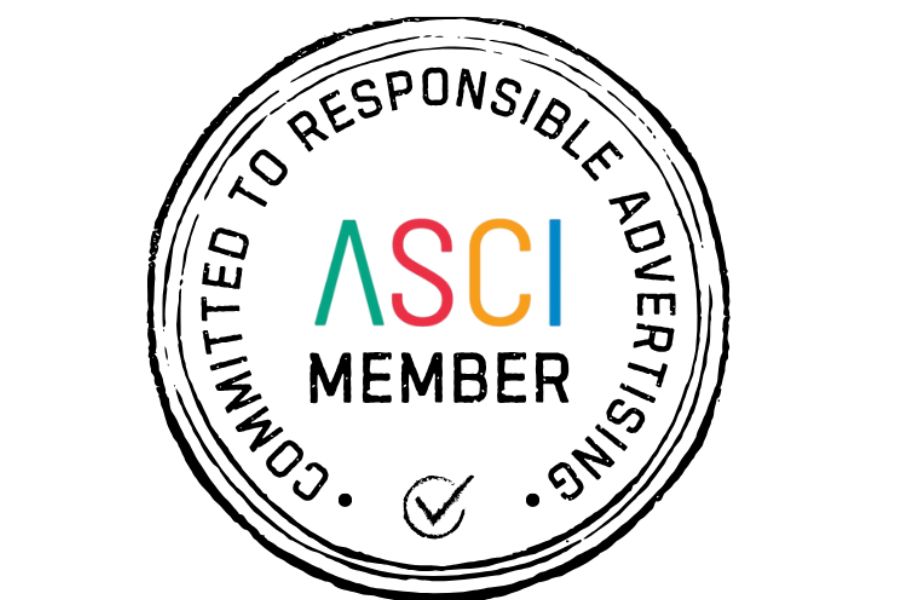At the Advertising Standards Council of India’s D&I Edge summit in Mumbai, held on 7 December, a panel comprising Ashiish Patil, CEO and co-founder, Isspeshal StratCon; Sumit Agarwal, DEl advisor to Fortune 500 companies; Anjali Krishnan, head of media, Mondelez; Anirban Mozumdar, chief strategy officer, Havas Creative India, discussed how to navigate challenges and opportunities related to fostering a more inclusive representation in the advertising ecosystem. The panel was moderated by Prasad Sangameshwaran, editor, Brand Equity.
It prompted discussions that explored reshaping the narrative within the dynamic realm of advertising, examined strategies going beyond surface-level efforts and spotlighted how brands should champion authentic representation.
Sense of diversity and inclusion in advertising
Agarwal emphasised the importance of genuine representation, stressing the need to move beyond tokenism in discussions about diversity and inclusion.
"It's crucial to ensure that all the necessary elements are in place – not just in marketing or communications but throughout the entire process. For instance, if featuring people with disabilities or from the LGBTQ community in advertisements, companies need to ensure their products are accessible to them. Authenticity stems from having the right elements across product development, planning, and representation," he voiced.
In Agarwal's view, this comprehensive approach is essential to convey that the product is meant for a diverse audience, with the backing of supportive management and genuine representation throughout the company.
Conversation of DE&I in the ad ecosystem
Krishnan shared insights on diversity and inclusion in advertising, highlighting the challenge of translating brand intentions into meaningful actions.
She emphasised, "There is a dire need for authenticity and genuine efforts, backed by a deep understanding of consumers. Diversity and inclusion, require sustained efforts beyond fleeting advertising content, rooted in a brand's ethos."
Drawing from the film industry, Patil stated, "There is striking data on disability representation, illustrating the significant gap. Our industry should be concerned about misrepresentation in terms of cast, specifically addressing the dangers of a 'pity party', and insensitivity in portraying marginalised communities."
Patil correspondingly stressed the importance of normalising diversity and echoed the need for progress, acknowledging the slower pace in films compared to advertising's evolving awareness and accountability.
How can agencies change the narrative?
Mozumdar reflected on the progress and challenges in the film industry, presenting compelling data on disability representation and underscoring the dangers of misrepresentation.
"There is an evolving awareness in advertising about diversity, contrasting it with the slower inclusion in mainstream movies. Agencies have acknowledged the ongoing conversations, emphasising the need for normalisation and addressing dangerous narratives like being called out for throwing a pity party for the marginalised communities," said Mozumdar.
He added, "There is an importance of data. Brands must have an advanced understanding of its diverse audience, including people with disabilities. The need for accurate data to drive interest and business, challenges the industry to consider the significant audience waiting to be engaged. Also, there should be a reliance on human emotions portrayed in the media. Without substantial data to support inclusive advertising practices, efforts for advocacy can go unnoticed."
Does advertising help change perceptions?
Highlighting the transformative power of advertising, Patil said, "There was a transgender band member, Komal, from the 'Six-Pack Band.' Komal's journey began with being ostracised by her conservative family to the moment when a music video featuring her garnered a million views and showcased the impactful reach of advertising. This is a testament to a remarkable business impact, including outselling a faculty category for a brand like Red Label. The most touching impact was Komal receiving a call from her father after ten years, signifying the profound influence advertising can have on acceptance and relationships."
Advertising's role in the pity party phase
Weighing in on the topic, Krishnan said, "Most advertising today borders on the pity party space, attempting to highlight issues and promote inclusivity. However, there is a need for authenticity, and inclusivity should be naturally woven into communication, not forced. The key is normalisation rather than explicitly showcasing diversity."
Mozumdar underlined the critical role of the intent of diversity and inclusion in advertising. He underscored, "There is an exposed nature of today's world, where insincere intentions are quickly called out. There is an innate importance in aligning actions with brand messages, not to be caught up in tokenistic activism. Normalisation shouldn't be the sole focus; relevance is paramount. Brands should have the ability of advertising to drive change and sensitivity, there should be a positive trajectory in addressing gender stereotypes."
Agarwal brought attention to the evolving landscape of conscious consumption, where consumers seek brands that stand for diversity, equality, and inclusion.
"Controversies aren't a strategic choice. The goal for brands should be, to address, redress, condone, or ignore social media responses, emphasises should be on the relevance of a brand's identity," voiced Agarwal.
Agarwal also brought attention to the power of conviction and authentic understanding.
"There should be recognition of the importance of diversity and inclusion. Brands should evolve from initial over expectations to a more well-thought and empathic approach in advertising," he highlighted.
How can brands move beyond surface-level advocacy?
In addressing the inherent risks of brand advocacy, Patil delved into the concerns faced by brand managers, emphasising the potential career pitfalls and the fear of backlashes.
"Despite the positive intentions, the fear of unintended consequences always lingers. There should be a delicate balance between progressive advertising and potential societal pushback," signed off Patil.




